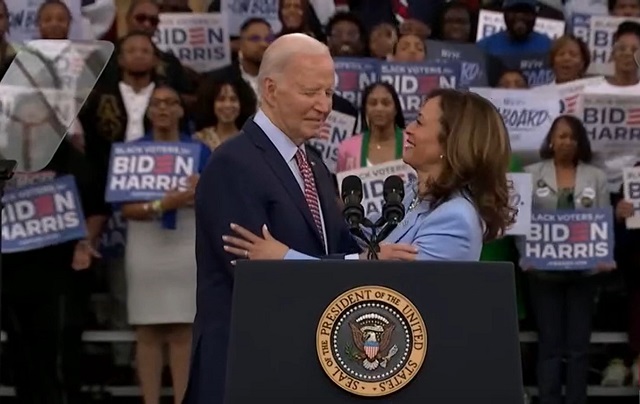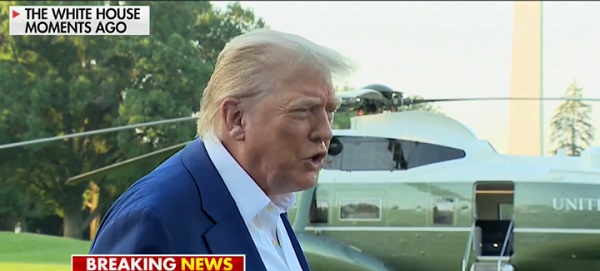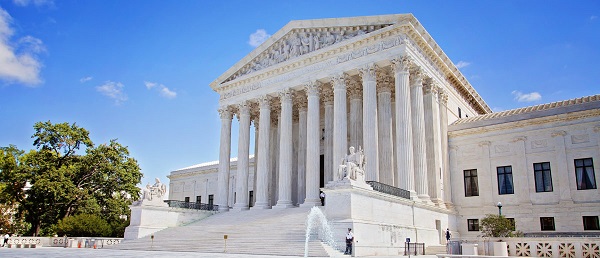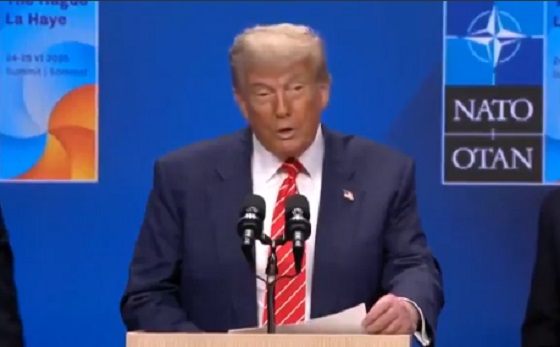Daily Caller
EXCLUSIVE: GOP Lawmakers Press Biden-Harris Admin Over Alleged Cover-Up Behind Major Fossil Fuel Crackdown

From the Daily Caller News Foundation
By Nick Pope
Forty-five GOP lawmakers are demanding answers from the Department of Energy (DOE) after a government watchdog group accused the agency of covering up a key study that would have interfered with one of the Biden-Harris administration’s most aggressive crackdowns on fossil fuels.
The lawmakers wrote to Energy Secretary Jennifer Granholm on Thursday to address a watchdog’s allegations that her agency conducted or drafted — and then quietly buried — a study on the emissions impacts of liquefied natural gas (LNG) exports in 2023 before pausing approvals for certain LNG export terminals in January on the grounds that the agency needed to conduct such a review. Government Accountability and Oversight (GAO), the watchdog making the allegations, is suing the agency under public records law to obtain the thousands of pages DOE concedes may fit GAO’s specific request searching for the 2023 study that the agency allegedly buried because it was producing politically inconvenient conclusions, as first reported by the Daily Caller News Foundation.
“The Biden-Harris Administration’s attempt to conceal its findings on liquefied natural gas impacts is troubling. Despite evidence that U.S. LNG benefits both the economy and global energy security, the Department of Energy has imposed an indefinite ban on LNG exports to non-free trade agreement countries without legal justification,” Republican Texas Rep. August Pfluger, one of the letter’s signatories, said in a statement shared with the DCNF. “The lack of transparency from DOE on existing studies, as well as the motivation behind the ongoing study, is unacceptable. The American people deserve accountability on the decision-making process surrounding our energy future.”
DOE Letter re: LNG studies, GAO accusations by Nick Pope on Scribd
If GAO’s allegations are ultimately substantiated, the Biden-Harris administration effectively misled the public in an election year to set up a policy that hurts American geopolitical interests and disincentivizes investment in major energy projects. However, the deep-pocketed environmentalist lobby aligning with Democrats in the 2024 election cycle celebrated the policy.
The lawmakers’ letter specifically asks Granholm to clarify whether the agency conducted any analysis of LNG exports’ emissions impacts before the Jan. 26 announcement of the freeze on approvals for LNG export terminals seeking to ship gas to non-free trade agreement (FTA) countries. The legislators also asked Granholm to detail whether top DOE officials or White House personnel ever received updates about such an analysis, even if preliminary, in the first ten months of 2023, as well as whether the agency still intends to publish its findings in January 2025.
“DOE is in receipt of this letter and is reviewing it,” an agency spokesperson said in a statement shared with the DCNF. “DOE’s process to update the analyses that informs its review of applications to authorize exports of US natural gas to non-free trade agreement countries is well underway. When the updated analyses are ready, we will publish them for the public to review and provide comment.”
The lawmakers gave Granholm until Nov. 8 to respond to their inquiry. Republican Reps. Darrell Issa of California, Dan Crenshaw of Texas, Harriet Hageman of Wyoming, Lance Gooden of Texas and Buddy Carter of Georgia joined Pfluger as signatories, among others.
Notably, the House Oversight and Accountability Committee sent its own letter to Granholm on Wednesday demanding answers about the same exact issue.
conflict
‘They Don’t Know What The F*ck They’re Doing’: Trump Unloads On Iran, Israel


From the Daily Caller News Foundation
President Donald Trump expressed frustration Tuesday after Iran broke a ceasefire, prompting retaliation from Israel during a gaggle with reporters on the White House lawn.
Trump announced the ceasefire Monday, saying it was supposed to take effect at 1 a.m. Eastern Daylight Time, but Iran fired missiles at Israel Tuesday. Trump vented, saying the countries had been “fighting so long” they couldn’t make peace.
WATCH:
“You know, when I say okay, now you have 12 hours, you don’t go out in the first hour just drop everything you have on them,” Trump said. “So I’m not happy with them. I’m not happy with Iran either. But I’m really unhappy if Israel is going out this morning because the one rocket that didn’t land, that was shot, perhaps by mistake, that didn’t land, I’m not happy about that.”
“We basically have two countries that have been fighting so long and so hard, that they don’t know what the fuck they are doing,” Trump added.
The United States struck facilities in Fordow, Natanz and Isfahan related to Iran’s effort to develop nuclear weapons early Sunday morning local time, using as many as 14 GBU-57 Massive Ordnance Penetrators in the operation, which involved a 37-hour flight by seven B-2A Spirit bombers.
The American strikes came ten days after Israel launched a military operation targeting the Iranian nuclear program. Iran has responded with repeated missile attacks on Israeli cities and a refusal to resume negotiations over its efforts to pursue nuclear weapons.
Automotive
Supreme Court Delivers Blow To California EV Mandates


From the Daily Caller News Foundation
“The Supreme Court put to rest any question about whether fuel manufacturers have a right to challenge unlawful electric vehicle mandates”
The Supreme Court sided Friday with oil companies seeking to challenge California’s electric vehicle regulations.
In a 7-2 ruling, the court allowed energy producers to continue their lawsuit challenging the Environmental Protection Agency’s decision to approve California regulations that require manufacturing more electric vehicles.
“The government generally may not target a business or industry through stringent and allegedly unlawful regulation, and then evade the resulting lawsuits by claiming that the targets of its regulation should be locked out of court as unaffected bystanders,” Justice Brett Kavanaugh wrote in the majority opinion. “In light of this Court’s precedents and the evidence before the Court of Appeals, the fuel producers established Article III standing to challenge EPA’s approval of the California regulations.”
Kavanaugh noted that “EPA has repeatedly altered its legal position on whether the Clean Air Act authorizes California regulations targeting greenhouse-gas emissions from new motor vehicles” between Presidential administrations.
“This case involves California’s 2012 request for EPA approval of new California regulations,” he wrote. “As relevant here, those regulations generally require automakers (i) to limit average greenhouse-gas emissions across their fleets of new motor vehicles sold in the State and (ii) to manufacture a certain percentage of electric vehicles as part of their vehicle fleets.”
The D.C. Circuit Court of Appeals previously rejected the challenge, finding the producers lacked standing to sue.
“The Supreme Court put to rest any question about whether fuel manufacturers have a right to challenge unlawful electric vehicle mandates,” American Fuel & Petrochemical Manufacturers (AFPM) President and CEO Chet Thompson said in a statement.
“California’s EV mandates are unlawful and bad for our country,” he said. “Congress did not give California special authority to regulate greenhouse gases, mandate electric vehicles or ban new gas car sales—all of which the state has attempted to do through its intentional misreading of statute.”
-

 Alberta1 day ago
Alberta1 day agoAlberta judge sides with LGBT activists, allows ‘gender transitions’ for kids to continue
-

 Alberta1 day ago
Alberta1 day agoAlberta Independence Seekers Take First Step: Citizen Initiative Application Approved, Notice of Initiative Petition Issued
-

 Crime14 hours ago
Crime14 hours agoNational Health Care Fraud Takedown Results in 324 Defendants Charged in Connection with Over $14.6 Billion in Alleged Fraud
-

 Health14 hours ago
Health14 hours agoRFK Jr. Unloads Disturbing Vaccine Secrets on Tucker—And Surprises Everyone on Trump
-

 Business3 hours ago
Business3 hours agoElon Musk slams Trump’s ‘Big Beautiful Bill,’ calls for new political party
-

 Business1 day ago
Business1 day agoCanada Caves: Carney ditches digital services tax after criticism from Trump
-

 Crime1 day ago
Crime1 day agoSuspected ambush leaves two firefighters dead in Idaho
-

 Bruce Dowbiggin1 day ago
Bruce Dowbiggin1 day agoThe Game That Let Canadians Forgive The Liberals — Again






